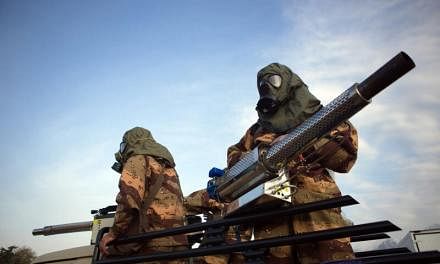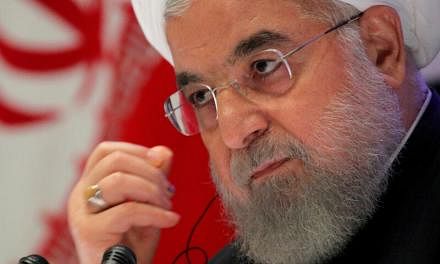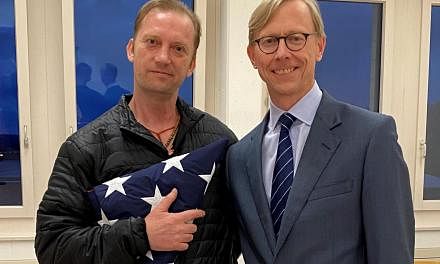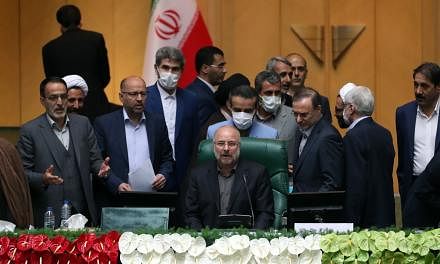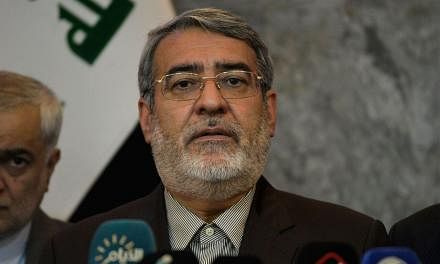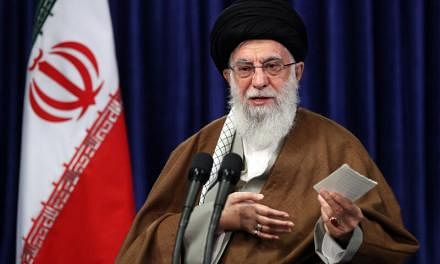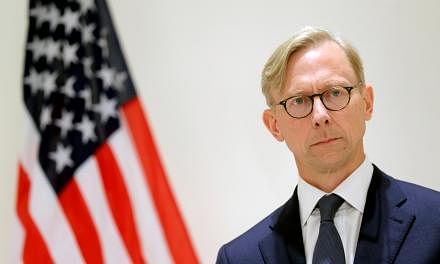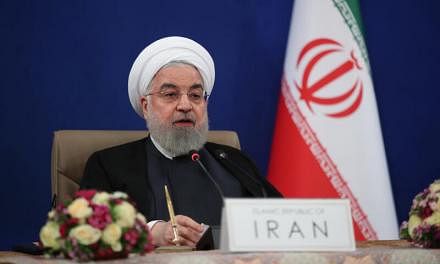TEHERAN • Just a few weeks ago, the streets in Iran were filled with protesters angry with their leaders over the flailing economy and its international isolation.
But at least for now, Iran is united - in anger at the United States.
For years, Iran has been a divided nation led by aged revolutionaries determined to impose their will on a predominantly young population with no memory of the Shah of Iran, who was deposed in the 1979 Islamic Revolution, and with a thirst to live in a more normal nation integrated into the world.
But suddenly, with one targeted assassination, the nation is rallying behind its leaders. Iran's most powerful military leader, Major-General Qassem Soleimani, was almost universally admired and had near cult figure status. After being killed in Baghdad last Friday in a drone strike ordered by US President Donald Trump, his image is now plastered across Teheran, shrouded in black drapes.
"Without doubt, the people of Iran will take revenge for this horrific criminal act," tweeted President Hassan Rouhani, a leader who once advocated diplomacy and integration with the West.
In neighbouring Iraq last Saturday, tens of thousands of pro-Iranian fighters marched through the capital, Baghdad, vowing to exact revenge on the US at a funeral procession for two revered Iraqi military figures who were also killed in the attack on Maj-Gen Soleimani.
Back in Iran, politicians and ordinary people of all stripes voiced support for the vow by Supreme Leader Ayatollah Ali Khamenei that "severe revenge awaits those criminals" who killed the general.
The assassination appears to have solidified the hardliners' grip on power, neutralising at least for the moment those who had called for talks with the West, experts inside and outside of Iran said.
Iran's relative moderates, including Mr Rouhani, have been on the defensive since Mr Trump withdrew from the 2015 nuclear deal and imposed an array of sanctions on the country, contributing to its sharp economic decline.
That reversal bolstered hardline critics who said it discredited those who had accepted earlier American assurances. Moderates had nurtured fading hopes of renewed talks with Washington.
Any talk of outreach or liberalisation seems more dangerous than it has in years and is likely to fade from public debate for now. The prospect of negotiations with the US, tweeted reformist journalist Sara Masoumi, is now "below zero".
Dr Vali Nasr, a Middle East scholar and former dean of Johns Hopkins University's School of Advanced International Studies, said: "At least in the short term, this will create a rally to the flag; Soleimani was personally popular." He predicted "an outpouring of emotion", both organic and whipped up by the government.
The killing "was the worst thing that could happen to civic movements in Iran and Iraq", said cyber-security expert Amir Rashidi, an Iranian based in New York. "It means more pressure on people already being squeezed politically and economically."
Maj-Gen Soleimani led the Quds Force of the Revolutionary Guards, in charge of Iran's foreign military operations. He commanded Iranian forces battling the Islamic State in Iraq and Syria (ISIS), and headed Iran's role in arming, training and directing anti-ISIS Shi'ite militias.
"Qassem Soleimani was seen as the public face of Iran's regional policy," said Dr Sanam Vakil, a senior research fellow and leader of the Iran Forum at Chatham House, an international affairs institute based in London. "Since the fight against ISIS, you've seen this surge of support for him."
Iranians who are usually outspoken in support of human rights have turned to national solidarity and sorrow at his death.
"How soon we forget how close ISIS was to us and who defeated this monster," actress Bahareh Rahnama posted on her Instagram account. One of Iran's biggest celebrities, she is well known for her support of women's rights.
NYTIMES
